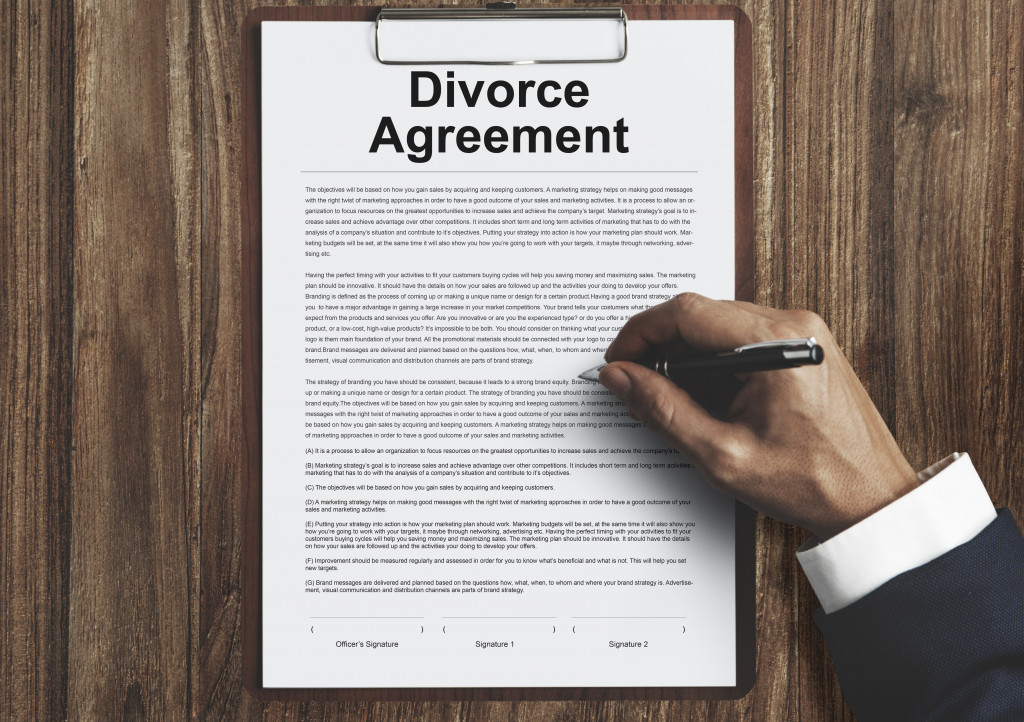Negotiating a settlement agreement in divorce cases can be complicated and emotionally challenging. The process involves legal considerations, finances, and the difficult task of balancing the desires and needs of two individuals. With the proper preparation, however, you can work together to reach an equitable and workable agreement that benefits both parties. This guide will discuss how to negotiate a settlement agreement in divorce cases.
Know the Process for Negotiating a Settlement
The negotiation process starts with gathering all relevant paperwork, such as tax documents and financial records. You must have copies of all relevant documents and information so the negotiation process can move forward. After gathering the documents, you and your spouse should list what you want from the settlement agreement. It is important to note that not all items may be able to be negotiated, but this list will give you both a better understanding of what you are looking for in an agreement.
Once both of you have created a list of what you want from the settlement agreement, it is essential to discuss these items and reach an agreement. During negotiations, you should know that compromise may need to happen for an agreement to be reached. If a settlement cannot be made, the negotiation process can become stalled, and moving on to another point of contention is best.
Understand Your Rights in Divorce Negotiations
You both need to understand their rights when negotiating a settlement agreement. Legal counsel can provide valuable advice on these matters. Still, it is also good practice to research and review state laws to ensure that you both know what you are entitled to during negotiations. Additionally, understanding relevant deadlines (such as those related to filing paperwork or responding to requests) can help keep the negotiation process on track.
A clear understanding of your rights in divorce negotiations is essential to ensure that both parties are treated fairly and that the agreement is equitable. If one of you feels disadvantaged or overlooked, you may be unable to move forward with the process. In addition to being aware of specific state laws, you should familiarize yourself with standard legal terms and any pre-existing agreements that may affect the outcome of negotiations.
It is also essential to understand how different assets are divided during a divorce settlement, including items such as property, real estate, bank accounts, investments, retirement benefits, debt (such as credit cards or loans), and alimony. Knowing the applicable laws helps you both understand the potential outcomes. Additionally, consulting a financial advisor can help you assess your financial situation and plan for the future.
Determine What Is Most Important To You in a Settlement

When negotiating a settlement agreement, both of you must determine what is most important or necessary. It may be helpful to list each person’s priorities and discuss which items are most important to both parties. This can help ensure that the agreement is equitable and beneficial for you and your spouse. Additionally, you should consider any contingencies you may need if certain circumstances change or either breaches an agreement.
In addition, you should consider other factors. You both should consider the length of time you will have to comply with any terms outlined in a contract. You should also discuss who is responsible for paying attorney’s fees and negotiation costs. Moreover, you both should consider whether you wish to pursue arbitration or litigation if there is any dispute over the agreement or its terms. It is also essential to identify what documents need to be signed and filed with the court for the agreement to be legally binding.
Consider Mediation To Reach An Agreement
Mediation for divorce can be an effective tool during your divorce negotiations. A mediator is trained in conflict resolution and provides a neutral third-party perspective on disputes between you and your spouse. Mediation aims to come to a mutually acceptable solution without involving the courts. However, you both need to understand their rights before entering into mediation. A legal professional can provide advice and guidance on this matter.
Mediation is a productive way to resolve disputes because it allows both of you to have input in the outcome. It also allows for more flexibility and creativity than traditional court proceedings. With mediation, you can craft an agreement that works for you and your unique situation rather than relying on pre-set legal standards imposed by the courts.
In Closing
Strategizing and negotiating a settlement in divorce cases can be complex, but with the right prep work, you can reach an equitable agreement that will benefit everyone. Each of you needs to understand your rights in negotiations, determine what is most important to you in an agreement, and consider mediation an option if necessary. With the proper guidance and support, you can reach the best resolution for everyone involved.







